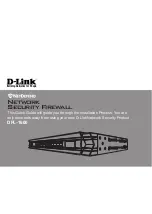
5. Alarms and Troubleshooting
MF0150A1A.doc
Manual for ION-M17EHP/19P
Page 39
5. Alarms and Troubleshooting
All alarms occurring can be checked via software at the Master Unit to where a
message is transmitted when the software acknowledges a valid alarm. A new alarm
message will not be repeated if the reason for the alarm is cleared or if the alarm
continues.
A new alarm message will be generated if the alarm is interrupted for at least five
seconds after acknowledgement. Refer to the corresponding software documentation
of the Master Unit for details.
For local supervision, a status LED on the connector flange of the unit (position see
section
4.2.3
) gives an indication of possible reasons for alarms. This table shows
possible on-site measures that could be checked before referring to the Master Unit
alarm list.
LED
Alarms
Possible on-site measures
Green No
alarm
Status ok
Orange
Alarms not directly related to RU/EU:
External alarms (RU only) Check externally connected devices.
Optical alarm Rx
(RU only)
Check fibre loss of optical link.
Check optical connectors.
Clean optical connectors.
(MU: Check optical output power of
corresponding OTRx at Master Unit).
ALC alarm
(MU: Decrease DL input power of affected
band).
Red
Alarms directly related to RU/EU:
Power 32 V
Change power supply (RUs with door).
Replace the affected Remote Unit.
Temperature
Reduce environmental temperature.
Eliminate thermal short circuit.
Fan (RUs/EUs with fan)
Disconnect and connect mains. Fans should
run. If not, replace the fans at RU.
I²C
Disconnect and connect mains.
Optical alarm Tx
Exchange RU/EU.
Amplifier “Power Down”
(MU: Change amplifier setting at MU
controller).
Status
LED off
Mains
Check power switch inside of RU/EU
(RUs/EUs with door).
Check mains cabling.
Check mains power.
table 5-1 Status LED alarms
The status of the RU/EU can be checked via the Master Unit (for details please refer
to the software manual of the Master Controller).Explicit troubleshooting is also
available in the MU software (software manual or WEB Interface).
The connection of the external alarms inputs and outputs provided is described in
chapter
4.2.11
.









































